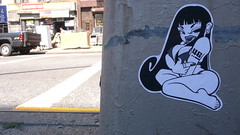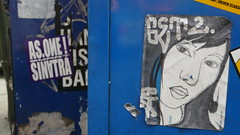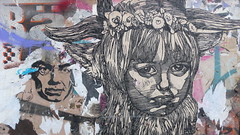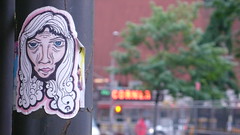
It is a myth that the women of Dunholt had it all. Certainly, on the books their position seems enviable. An idea of their status can be found in countless examples from the earliest annals of Thietmar's book of law; chapter 26, section 5 for example, which stated: "If anyone kills a woman he shall be tried in the same way as if he has killed a man." But while the wrongful death of a man brought with it a penalty of up to 500theitmars depending on the class of the victim, the "pay what you can" penalty associated with the murder of a woman was a long-standing source of contention among the ladies of Dunholt. This, along with the unwritten, though generally considered law practice of requiring widows to prove their virginity before allowing them to collect inheritances are just two of the seemingly conflicted examples from Dunholt antiquity that prompt further consideration.
Family Life
Most early Dunholt women were wives and mothers. Even in a city as cosmopolitan as Dunholt, hierarchy was important and most citizens agreed that a wife should obey her husband. While it was a myth that a man had a right to beat his wife provided he used a stick no thicker than his thumb, it is true that a man had a right to beat his wife provided he used a bundle of birch twigs instead of a stick. And while most cities in the region abandoned such practices as the centuries advanced, Dunholt retained protection of this abuse well into the 19th century. In fact, it was widespread annoyance of women whose husbands had taken to switching their rear ends while they attempted to go about their daily tasks, that was the catalyst for Dunholt's first Council of Edith, the formal gathering of Dunholt women under the then Secretary of the Interior Edith Handlebaum who advocated withholding sex until the law was off the books. But, as it is widely known, the Dunholt men had a near epic love of pornography (it was, as they said, "all of the boink with none of the blab") and it was nearly a decade before they even noticed the ban was in effect. By this time, the population had begun to shrink. By 1900 Dunholt had half the number of residents it did 100 years earlier. But by this time the women had forgotten about the switching and were instead mad that the men had not missed their physical affections. The second Council of Edith extended the ban, and by 1950, the population had dwindled by half again.
Women's Work
Dunholt became a major economic force in the mid-16th century. It was a time of unprecedented change and the beginning of the modern era. But even so, across the continent in other regions, professions remained closed to women. Not so in Dunholt, where men welcomed women into the skilled fields, not only as apothecaries and midwives, but as doctors, lawyers, and teachers. In fact, the guilds in Dunholt gained notoriety for their near revolutionary practice of granting women the week of their periods off work un-penalized. Within the city limits, however, this eventually came under attack as suspiciously motivated, as the men began to use these weeks off (which had synced up, due to the small size of the community and the tendency of the population to cluster in close proximity to one another) to enact controversial legislation in the women's collective absence. Notable examples include the passing of a state-sponsored sin tax on Kotex and the addition of the Latin motto, femineus es non merda, or "bitches ain't shit," to the Dunholt national seal, the latter of which took place when the only female member of the Parliament was out eating a huge bowl of ice cream in her blood-stained pajamas.
In response, her supporters subverted, denounced their citizenship, and left the city in protest, taking a barge down the Urville river with a few select gays to manage their communal wardrobe. While this reactionary group of women, which came to be known as the Dunholt Rags, was not officially heard from again, Dunholt legend has long held that the periodic disappearance of some of the more handsome and soft-spoken of the Dunholt men can be attributed to the group's occasional reproductive yearnings. This moment in history is also generally credited as the origin of Dunholt's national insult, "May your ass appear fat as you leave us," as well as its most popular fare-thee-well, "May your junk not ba-dunk should you go."
Revolution
The first wave of feminism in Dunholt occurred, as it did in the UK and US, during the nineteenth and early twentieth centuries. Originally, it focused on the promotion of equal contract and property rights for women and the opposition to chattel marriage and ownership of married women and their children by their husbands. However, by the end of the nineteenth century, activism in other areas of the world focused primarily on gaining political power, particularly the right of women's suffrage. Since there was no voting in general in Dunholt, but rather constant regimes of Kleptocracy, which the women and in fact everyone in Dunholt, being in general unconcerned with politics as they were, were fine with, the would-be-suffragettes in Dunholt busied themselves instead with other issues of importance. Women in Dunholt had been, in the global scheme, integrated into the workforce early. Little by little, the men of Dunholt had left the outside workforce, but done such a poor job at adopting the traditional home duties that women found themselves both earning wages and picking up socks and underwear, caring for children and pets, and doing all the dishes. In 1918, the We Know You Broke Those Dishes on Purpose Just So We Would Just Do Them Ourselves Act was passed, followed quickly by the You Totally Know How to Separate the Whites, This is Total Bullshit Act of 1919. There was no bra-burning in Dunholt, but the We Refuse to Acknowledge Panty Lines as a Problem movement, along with the mid-century anonymous publication of the highly controversial feminist text, Why do you have to make me act like such a Bitch? were considered major boons to the later burgeoning feminist movements that focused as much on fighting the social and cultural as political inequalities.
Notable Dunholtian Women
The patron saint of Dunholt, an official who was canonized when his balls were reportedly squeezed so tightly by his wife this his voice took on the angelic tone of the castrati, was male, as indeed most of Dunholt's most notable citizens were. Among the most notorious, however, was Hilda Castle, who killed her husband with a cocktail fork because, according to court transcripts, he had for twelve years washed only his place setting after dinner and, one fateful day, recommended that Hilda "go douche" when she complained about it.
Art & Culture
The contributions of women to Dunholt's art and culture cannot be underestimated, though they are underrepresented in the scholarly records of the city. Dunholt's most celebrated novel, The Apple In The Shovel Filled With Ice Thaws In Spring, was written in 1824 by Panta Boorheen, an immigrant who has been historically assumed by Dunholt scholars to have been male for the simple footnote that "women don't write that sort of high concept novel." Some critics have recently argued, however, that certain elements, for example the inclusion in Chapter 8: This Apple is Just Not Going to Taste as Good Next Spring, of the concept of "me time," as well as the heartrendingly existential questioning of the protagonist who asks repeatedly in the final chapters, "How many calories are there in this apple anyway?" stand as irrefutable evidence that Panta Boorheen was, in fact, female.
In Conclusion
One need only look to The Tower of Hook, the architectural wonder and horror, the steel building in the shape of a fish hook that was in the city's final years occupied by The Dunholt City Museum. While many efforts and lavish fund-raising events failed to allow the museum to ever open its doors to the public, do not doubt that inside, its hallowed halls are filled with the contributions of the fairer sex of Dunholt: TrishaMermlestein, Dunholt's darling of Broadway; Congresswoman Jennifer Kirkfarfelberry, who criminalized "going Dutch;" and Dina Doverville, who invented peanut brittle just one day after George Washington Carver, just to name a few.
Thou Shall Always Kill by dan le sac verse Scroobius Pip
Jill's audio fiction has been featured internationally by Chicago Public Radio, the Third Coast International Audio Festival, and New Adventures in Sound Art. Her work has appeared in Stop Smiling Magazine, Ninth Letter, and THE2NDHAND and is forthcoming in littleBANG, RAGAD, Annalemma, and Please-Don't. She is the author of two collections of audio shorts, Cohabitation and Les Petites Tristes: Tiny Tales of Woe. Jill has received the Weisman Grant and an IL Arts Council Literary Award; is a two time Caxton Club Fellow; and was recently awarded a CAAP grant to produce a new collection of audio shorts. Her first play, In the Curious Hold of the Demeter: Count Orlock at Sea, was awarded a Henson Grant to be produced by The Incurable Theater this Fall at the Chicago Cultural Center. She also runs Stray Dog Recording Co. in Chicago. A Woman's History of Dunholt is excerpted from Findings. To learn more about Jill's work you can also visit her website Calling All Monkeys.
Photos by Adam Lawrence
Image in first photo is by Shiro
Image in second photo is by Get 2
Image in third photo by Gaia
Image in fourth photo by Zen Jellyfish
dan le sac verse Scroobius Pip is a UK duo that feasts on beats and humor. "Thou Shall Always Kill" is taken from their May release Angel, and is as true as it is humorous. Interesting fact, Scroobius Pip (intentionally misspelled) takes his name from the final poem written by Edward Lear called The Scroobious Pip.

No comments:
Post a Comment